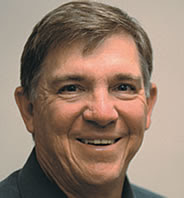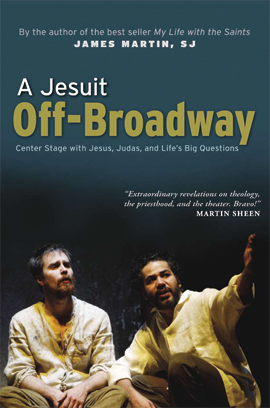"The Forgiveness Book,"
by Alice Camille & Paul Boudreau
and
"The Power of Forgiveness,"
by Kenneth Briggs
Two very different approaches tackling the same subject isn't unique. Two very different books tackling the same subject happens frequently.
But that authors tackle the same subject for the same reason -- that a book on forgiveness has never been more needed -- maybe that's a message that the subject is not just interesting but vital.
Just over 100 pages long -- counting the useful and worthwhile appendix -- "The Forgiveness Book" is an easy read that offers countless good reasons for making a "divine" response when others err.
Camille, an award-winning writer and Father Boudreau, an oft-published priest-columnist, come at the rationale for forgiveness from an admittedly Catholic perspective. This is a little book laced with down-to-earth reasoning that explains significant theology in simple, easily understood language.
Alternatives no bargain
They acknowledge that forgiveness is "an ugly job," but that "the alternative to forgiveness is far uglier: hardened hearts, broken relationships, memories full of shrapnel, and families or communities paralyzed and divided."
If we don't choose to forgive, we get trapped in the addictive pattern of condemnation, blaming, open hostility, self-righteousness, hidden resentment, cold anger, cynicism -- the list goes on and on -- and the one we do the most damage to is ourselves, because not to forgive "weighs us down, saps our energy, hurts our bodies and leaves us weary."
There is a platitude or two of advice here, but most helpful is a brief, seven-point list of what forgiveness is -- and what it is not. Importantly, the authors aren't afraid to address the concept of sin, and do so in the healthy express of "missing the mark" in what we ought to be aiming at in our actions, decisions and relationships.
They stress that forgiveness is a choice, and the Sacrament of Reconciliation gets high marks as a structure that makes that choice easier.
Camille and Boudreau summarize their work well:
"Forgiveness is not just a thing nice people do. It's not a tactic we might consider for personal improvement or to tidy up our spiritual lives. As the world we live in spirals toward greater feats of injustice, greed, violence and bigotry, the reasons to forgive mount astronomically. The cost of unforgiveness, too, becomes ever more apparent. . . . The human race must learn to forgive, to practice forgiveness, to choose it, to seek it, to value it, and to want it. That means each of us individually must do the same, because the whole world begins in the human heart."
From film to print
Kenneth Briggs' "The Power of Forgiveness" is based on a film by Martin Doblmeier and delves into the topic by looking at specific instances of forgiveness and analyzing them, then going several steps deeper.
The most recent, the murder spree that left five Amish schoolchildren dead and five wounded in a Pennsylvania classroom, is the opening to view forgiveness from the religious perspective. The most interesting portion of this was Briggs' parsing of the idea that the Amish' forgiveness of the madman murderer was "a spiritual reflex," something the Amish learn "by watching parents and neighbors forgive and by looking at the example of Jesus."
Several of the world's religions get a similar analysis.
A section on the sociological perspective wonders if those who forgive may be healthier than those who don't. Another chapter discusses how very difficult -- even impossible -- forgiveness can seem. There's brief mention of the death penalty debate and the film "Dead Man Walking," plus the complex grief of a mother of a New York City firefighter who died on 9/11, and even a few paragraphs that touch upon the sex abuse scandal in the Catholic Church.
The most interesting quote from that latter part?
"Somehow a refusal to pardon guilty priests provides a balance to years of having forgiven them too much. . . . For most lawyers fighting for huge cash settlements, forgiveness is unthinkable, even laughable."
There's much more, but let me recommend this book by quoting from one quoted in it, author and lecturer Marianne Williamson:
"At a time when we see so much evil, we are called upon . . . to stand for the possibility of human redemption that turns even the hardest of hearts." -- bz
Thursday, July 3, 2008
'To forgive, divine'
Labels:
Amish,
Catholic,
church,
Forgiveness,
Kenneth Briggs,
Martin Doblmeier,
redemption,
religion,
sacraments
Subscribe to:
Post Comments (Atom)



No comments:
Post a Comment